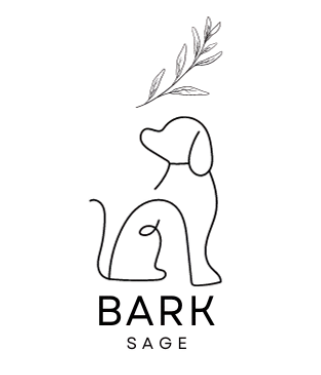
As a dog owner, you know that our furry friends bring so much joy and love into our lives. They are our loyal companions, always by our side through thick and thin. But imagine this – you go in for a cuddle with your beloved pup, and suddenly, an unpleasant odor fills the air. It’s their breath, and it’s not exactly pleasant.
Bad breath in dogs can be a source of concern and discomfort, both for them and for us. Not only can it make snuggling less enjoyable, but it can also be a sign of underlying oral health issues or even more serious conditions like liver disease. It’s vital to address bad breath in dogs to ensure their overall well-being and keep them happy and healthy.
But where do you start? How do you fix bad breath in your furry friend and restore their fresh-smelling kisses? In this section, we will explore simple solutions and tips to help you combat bad breath in dogs. From home remedies to dental care products, we’ll cover everything you need to know to ensure your dog’s breath is as fresh as a daisy.

A dog happily chewing on a dental chew toy while a toothbrush and toothpaste sit nearby. A smiling owner looks on as the dog’s breath smells fresh and clean.
Key Takeaways:
- Bad breath in dogs can be a sign of oral health issues or underlying health problems.
- Addressing bad breath in dogs is crucial for their overall well-being.
- Home remedies, dental care products, and regular vet check-ups are essential for fixing bad breath in dogs.
- Identifying the underlying cause of bad breath is crucial for effective treatment.
- Maintaining good oral hygiene through regular teeth brushing and providing appropriate chew toys and dental treats can help prevent bad breath in dogs.
Causes of Bad Breath in Dogs
Bad breath in dogs can have various causes, and it’s important to identify the underlying issue in order to effectively address it. The most common cause of bad breath in dogs is poor oral hygiene, leading to dental disease, including plaque and tartar buildup and periodontal disease. Unpleasant dietary habits, such as eating trash or feces, can also contribute to bad breath. In some cases, bad breath can be a symptom of more serious health problems like diabetes, kidney disease, or liver disease. Identifying the underlying cause of bad breath is crucial for effective treatment.
To better understand the causes of bad breath in dogs, let’s take a closer look at some of the key factors:
- Poor Oral Hygiene: Without proper dental care, bacteria in the mouth can accumulate and form plaque, which hardens into tartar over time. This buildup of plaque and tartar can lead to inflammation of the gums (gingivitis) and, if left untreated, progress to periodontal disease. Both gingivitis and periodontal disease can result in persistent bad breath.
- Unpleasant Dietary Habits: Dogs may develop bad breath if they have a habit of eating unpleasant substances, such as trash or feces. These substances can introduce foul odors into the digestive system and subsequently cause bad breath.
- Underlying Health Conditions: Bad breath can sometimes be a sign of underlying health problems. For example, dogs with diabetes may have sweet-smelling breath, while dogs with kidney or liver disease may have a distinct ammonia-like odor. It’s essential to consult with a veterinarian if your dog’s bad breath persists or is accompanied by other concerning symptoms.
Preventing Bad Breath through Oral Hygiene
Proper oral hygiene plays a crucial role in preventing bad breath in dogs. Here are some tips to maintain your dog’s oral health:
- Regular Teeth Brushing: Brush your dog’s teeth regularly with a dog-friendly toothbrush and toothpaste. This helps remove plaque and maintain fresh breath. Consult your veterinarian for guidance on suitable dental care products for your dog.
- Dental Cleaning: In addition to regular brushing, professional dental cleanings may be necessary to remove stubborn plaque and tartar. Your veterinarian can perform a thorough dental cleaning under anesthesia to ensure a comprehensive oral examination and cleaning.
- Chew Toys and Dental Treats: Providing appropriate chew toys and dental treats can help reduce plaque and tartar buildup by promoting chewing and reducing bacteria in the mouth. Look for dental-specific products that are safe for dogs.
- Balanced Diet and Regular Exercise: A balanced diet that meets your dog’s nutritional needs and regular exercise can contribute to overall oral health. Avoid feeding your dog excessive amounts of sugary or starchy foods, as they can contribute to dental issues.
- Veterinary Check-ups: Regular veterinary check-ups are essential for monitoring your dog’s oral health. Your veterinarian can identify any dental issues early on and recommend appropriate treatment.
Remember, prevention is key when it comes to your dog’s oral health. By implementing good oral hygiene practices and addressing any underlying health issues, you can help keep your furry companion’s breath fresh and promote their overall well-being.
Treating and Preventing Bad Breath in Dogs
When it comes to treating and preventing bad breath in dogs, a proactive approach is essential. By incorporating a combination of at-home care and professional dental cleanings, you can ensure that your furry friend’s breath stays fresh and their oral health remains in top shape.
Regular Teeth Brushing
One of the most effective ways to maintain good oral hygiene in dogs is through regular teeth brushing. Just like humans, dogs need their teeth cleaned to prevent the buildup of plaque and tartar, which can cause bad breath. Use a dog-friendly toothbrush and toothpaste, and make it a habit to brush your dog’s teeth at least a few times a week.
Professional Dental Cleanings
In cases where your dog has more severe dental disease, professional dental cleanings may be necessary. These cleanings are performed by veterinarians and involve a thorough examination of your dog’s mouth, removal of plaque and tartar, and polishing of the teeth. Regular dental cleanings can keep bad breath at bay and help prevent further oral health issues.
Chew Toys and Dental Treats
Chew toys and dental treats can be great allies in your fight against bad breath. They not only provide mental and physical stimulation for your dog but also help keep their teeth clean naturally. The act of chewing promotes saliva production, which helps wash away bacteria and reduce plaque buildup. Opt for chew toys and dental treats that are specifically designed to improve oral health.
A Balanced Diet and Exercise
What your dog eats can also affect their breath. Feeding a balanced diet that meets their nutritional needs is crucial for overall health, including oral health. Avoid heavily processed or low-quality dog foods, as they can contribute to bad breath. In addition, regular exercise helps maintain a healthy metabolism and can indirectly improve your dog’s breath.
Dental Sealants
For dogs prone to dental issues, veterinary professionals may recommend dental sealants. Dental sealants are a protective coating applied to the teeth to prevent the accumulation of plaque and tartar. This can help reduce bad breath and protect your dog’s teeth from further damage. Consult with your veterinarian to see if dental sealants would be beneficial for your furry companion.
By incorporating these strategies into your dog’s oral care routine, you can effectively treat and prevent bad breath. Remember to schedule regular veterinary check-ups to monitor your dog’s oral health and address any underlying issues. With proper dental care and attention, your furry friend can enjoy fresh breath and a healthy smile!
Conclusion
Addressing bad breath in dogs is essential for their overall well-being. By prioritizing dental care and regular veterinary check-ups, you can effectively fix bad dog breath and maintain good oral health for your furry companion.
Establishing a routine of teeth brushing is key to preventing plaque and tartar buildup, which can cause bad breath. Providing appropriate chew toys and dental treats can also help keep your dog’s teeth clean naturally. These products aid in maintaining oral hygiene by reducing the accumulation of bacteria in the mouth.
Feeding a balanced diet and ensuring regular exercise are important factors in preventing bad breath as well. A healthy diet supports strong teeth and gums, while exercise helps maintain overall oral health by promoting good blood circulation. Additionally, professional dental cleanings may be necessary for dogs with more severe oral health issues.
With proper dental care, regular veterinary check-ups, and a holistic approach to oral health, your dog can enjoy fresher breath and a healthier smile. By taking these preventive and treatment measures, you can contribute to your dog’s overall well-being and ensure a long and happy life together.
FAQ
How can I fix bad breath in my dog?
There are several ways to address bad breath in dogs. You can start by maintaining good oral hygiene through regular teeth brushing, providing chew toys and dental treats, and feeding a balanced diet. It’s also important to schedule regular veterinary check-ups for professional dental cleanings.
What are the common causes of bad breath in dogs?
Bad breath in dogs is often caused by poor oral hygiene, which can lead to dental diseases such as plaque and tartar buildup, and periodontal disease. Unpleasant dietary habits like eating trash or feces can also contribute to bad breath. In some cases, bad breath can be a symptom of more serious health issues like diabetes, kidney disease, or liver disease.
How can I prevent and treat bad breath in my dog?
To prevent bad breath in dogs, it’s important to establish a routine of teeth brushing, provide appropriate chew toys and dental treats, and feed a balanced diet with regular exercise. Regular veterinary check-ups and professional dental cleanings may be necessary for dogs with more severe dental issues. Dental sealants may also be recommended for dogs prone to dental problems.
Why is oral health important for dogs?
Maintaining good oral health in dogs is crucial for their overall well-being. Poor oral hygiene can lead to dental diseases, which can cause pain, tooth decay, and even internal health problems. By prioritizing your dog’s oral health, you can help prevent bad breath and ensure their overall health and happiness.


